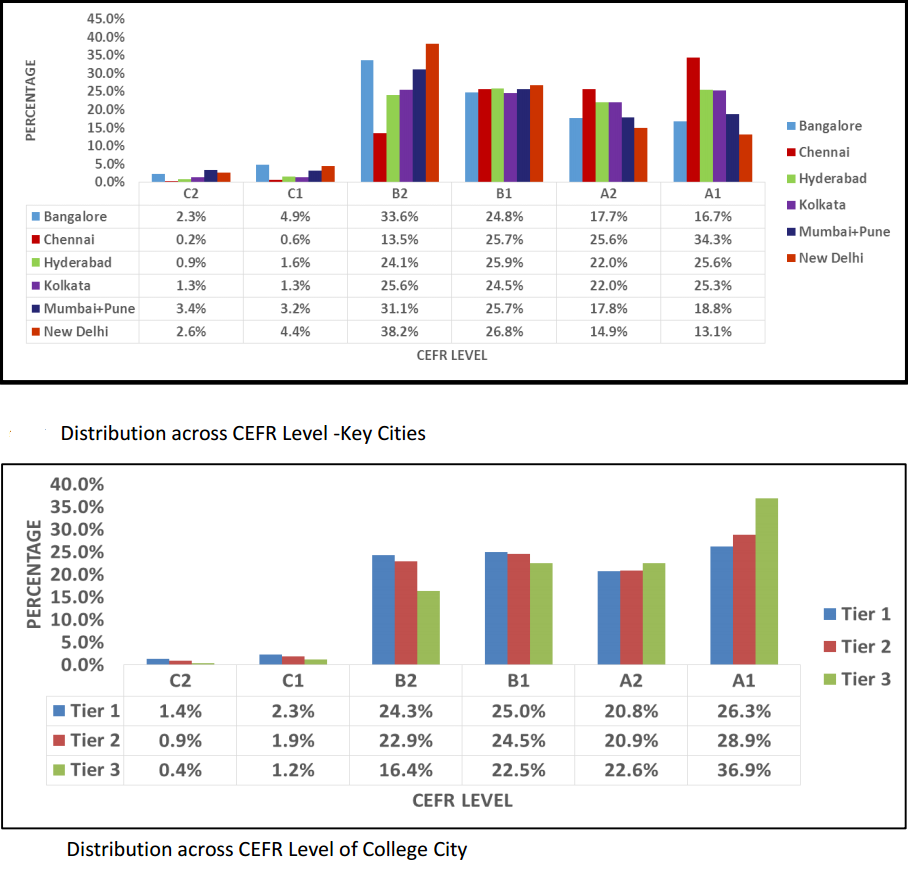A Latest shocking reports reveal that 67% Engineers in India can neither ‘walk’ nor ‘talk’ English. This is something strange, but a fact, as the number of engineers are manufactured day by day by engineering colleges we are actually having more quantity of Engineers rather than having quality engineers, and that’s the reason engineering colleges, the government is not focusing on skills of an engineer and their syllabus in college but just a degree. This is what happening nowadays and this a serious issue in our country ana maximum engineering graduates become unemployed.
According to Aspiring Minds, world’s leading employability credentialing firm released a report on the state of spoken English capabilities in young engineers and how their employability is affected by their Spoken English skills. The National Spoken English Skills (SES) of Engineers report analyses the spoken English skills of over 30,000 engineers in India from more than 500 colleges. The study is based on SVAR, Aspiring Minds patented automated spoken English assessment tool measuring spoken English (pronunciation, fluency, etc.) and listening skills and is used across the world by large global corporations to test and rate spoken English capabilities.
Recommended:- 8 Reasons Why To Be an Engineer
According to the report over 51% engineering graduates are not employable based on their spoken English scores. This is a signal that there is a need for higher emphasis not only on written English. The report extensively discusses specific areas of spoken English skills that engineering graduates most lack in and implications of these deficiencies. It also provides suggestive ways to bridge these gaps by way of interventions in the Indian higher education system in order to improve the English of students.
Of the six hundred thousand engineers that graduate annually, only 2.9% candidates have spoken English skills (SES) for high-end jobs in corporate sales/business consulting. These are some of the best paying jobs in the market. This signals that there is a need for higher emphasis not only on written English but also on SES.
Varun Aggarwal, co-founder and CTO, Aspiring Minds,said, “With jobs going global, the importance of English has increased manifold. It is now a medium of communication at both international and intranational levels. However, at the same time, it is disappointing to know that 97% engineers cannot speak English fluently and 3/4th of them are not eligible for job requirements in any knowledge economy. He further adds, “Recruiters and HR managers around the world report that candidates with English skills above the local average stand out from the crowd and garner 30-50% higher salaries than similarly-qualified candidates without English skills. The trends in India are no different, with English fluency being one of the key qualities recruiters look for during the interview process.” Engineers show
Engineers show larger gap in elements of spoken English, pronunciation and fluency. Only 6.8% engineers show ability to speak/respond spontaneously. These candidates can speak fluently, with good pronunciation and proper sentence construction. Tier of college has been found to have major influence on quality of spoken English. As expected the spoken English ability of candidates becomes worse, on an average, in campuses in lower tier cities. There is further degradation of spoken English skills from tier 2 to tier 3 campuses as compared to that from tier 1 to tier 2 campus.
Source:- Aspiring Minds










